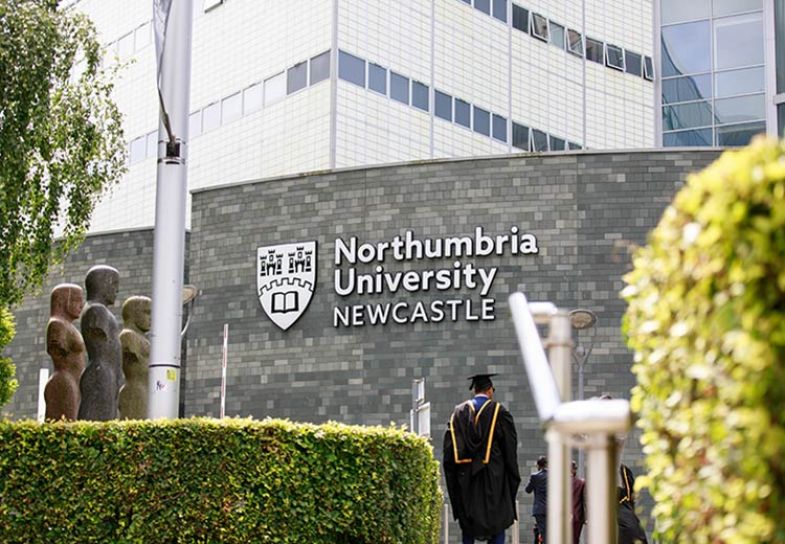
The 2022 University of the Year enters its next phase as a research-intensive modern university with the launch of the new Vice-Chancellor’s Fellowship scheme
Northumbria University achieved the ultimate recognition as a research-intensive university last year – being crowned University of the Year at the Times Higher Education Awards 2022. The accolade followed a stellar performance in the 2021 Research Excellence Framework, where, for the second time, Northumbria recorded the biggest rise in the research power ranking of any institution, climbing from 80th position in 2008 to 50th in 2014, and to 23rd in 2021. Deputy vice-chancellor Tom Lawson attributes the university’s success to a strategic plan focusing on high-quality research and a “tremendous collective effort”.
In a bid to further drive its ambitious research agenda, Northumbria has launched its Vice-Chancellor’s Fellowship scheme, aimed at academics at all career stages. Successful candidates will be appointed to a permanent academic position with a salary commensurate with their academic standing as assistant professor, associate professor or professor.
The scheme is open to applications from exceptional academics who can demonstrate how their research aligns with any of the university’s disciplines, or one of Northumbria’s research peaks of excellence: computerised society and digital citizens; cultural and creative industries; energy materials and systems; microbial biotechnology; multiomics for health; solar and space physics; the future of ice on earth; and volunteering, humanitarian crisis and development. The successful cohort of 30 academics will develop and carry out their research plans in these areas while also receiving support via the Northumbria Fellowship Academy.
Fellowship schemes are often aimed at early career academics and sometimes require participants to undertake teaching commitments alongside their research, but Northumbria’s scheme will be different. There will be no formal teaching scheduled for the first year, so academics can focus fully on their research; the second year will require a 50 per cent teaching commitment for one semester; and the final year will involve 50 per cent of a typical teaching workload across the full year.
Academics will have access to an internal research budget and help with external funding applications, as well as a mentor who will work with them on research development. This will not be a case of putting career plans on hold – participants will be part of Northumbria’s Academic Development Review process, which means they will be eligible for academic promotion during the fellowship period. At the end of the fellowship, they will transition into their substantive academic role whilst providing support to other Vice-Chancellor’s Fellowship cohorts.
Speaking of the university’s transition to a more research-focused institution, Lawson says: “It has taken some steadfastness and resolve to stick with it because ultimately it involved also transforming the confidence of the organisation as well. This scheme speaks to that new-found confidence as we seek to appoint the very best scholars to come with us on the next stage of our journey.”
Northumbria’s new vice-chancellor, Andy Long, is looking forward to welcoming the first cohort of fellows later this year. “I am delighted to be launching the new Vice-Chancellor’s Fellowship scheme and am excited to work with the outstanding scholars that will come to Northumbria as a result,” Long says. “Northumbria is an ambitious university that is looking to transform the lives of all of its students and the North East region, and the Vice-Chancellor’s Fellowship scheme is an indicator of that ambition.”
Applications for the scheme are open until Monday 6 February 2023, and candidates must provide a two-page research plan and details of how their research would make an impact for Northumbria, alongside a CV and a covering letter.
